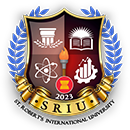Call for Papers
The pandemic has brought unprecedented changes in the world, particularly in the education sector. Notwithstanding its havoc on human lives, and the disruption to the economy, society, and education, COVID-19 hastened the rise in technology. Thus, bringing us to the new normal. Hence, educationeering equipped us to face the future in all aspects of 21st-century education. Educationeering is not a new term. It was defined by Dr. Pius Augustine Obanya, who brought education reform in Nigeria and West Africa. Educationeering is directing the triple academic functions of Research, Teaching and Responsive Social Engagement towards the education challenges of society.
In the new normal, the educators and the students are no longer confined in the classrooms, but in cyberspace where the interactions are limited to emojis, turned-off cameras, short messages, and pre-recorded lectures and activities. These hinder our emotional connection with each other since we cannot have physical contact and face to face communication. Educationeering is the appropriate way to address the challenges of the 21st century. Through research, we can identify the obstacles in teaching and online learning. Therefore, our findings and solutions must be responsive and engage society to address the challenges. Hence, we can develop appropriate teaching strategies and methods to the needs of the students. At the conference, the participants will have the opportunity to present their research on various fields of education and to exchange ideas, as well as to upgrade their knowledge on the recent practices on 21st-century teaching and learning. We welcome presentations on the fields of Education, Languages, Communication, Technology, Psychology and Management.
Cluster 1: Languages
•Alternative/Authentic assessment
•Anxiety & Motivation
•Bilingualism
•Blended learning
•Communicative Language Teaching
•English for Specific Purposes
•Individual differences
•Innovative language teaching and learning methodologies
•Knowledge management
•anguage learning
•Language acquisition
•Testing and evaluation
•Translation, Interpretation and Localization Learner and teacher autonomy
•Learning Environments
•Learning Strategies
•Literature
•Methodology
•Teacher training
•Linguistics
•Phonetics and Phonology
•Pragmatics
•Sociolinguistics
•Cross-Cultural Communication
•World Englishes/Global English
Cluster 2: Communication
•Communication Management•Journalism
•Advertising
•Radio
•Television
•Film
•Communication Arts
•Information Communication
•Learning Space
Cluster 3: Education
•Psychology and Counseling•Adult and Continuing Education
•Educational Theory
•Education Policy and Planning
•Curriculum and Instruction
•Quality Assurance
•Civil Education
•Early Childhood Education
•Higher Education
•Lifelong Learning
•Transnational Education
•Lifelong Learning
Cluster 4: Information Technology
•E-Learning•E-Education
•Mobile Learning
•Learning Management System
•Blended Learning
•Online Learning Platform
•Alternative Education
Cluster 5: Humanities and Social Science
•Demography and Family Planning•Social and Community Development
•Globalization and Sustainable Development
•Political Science and Sociology
•Economic and Community Development
•Human Resource Management
Cluster 6: Hospitality and Tourism
•Heritage and Tourism•Halal Tourism
•Regional Branding
•Multi-channel and Omni-channel Marketing
•Sustainable Tourism
•Eco-tourism
•Lifestyle Medicine
•Lifecycle Perspective of Tourists
•E-Tourism
Cluster 7: Governance
•Comparative Governance•Good Governance
•Security and Safety
•Maritime Safety and Security Education
•Cyber Security
•Data Management
•Law Enforcement
•Public Safety Education
•Leadership






